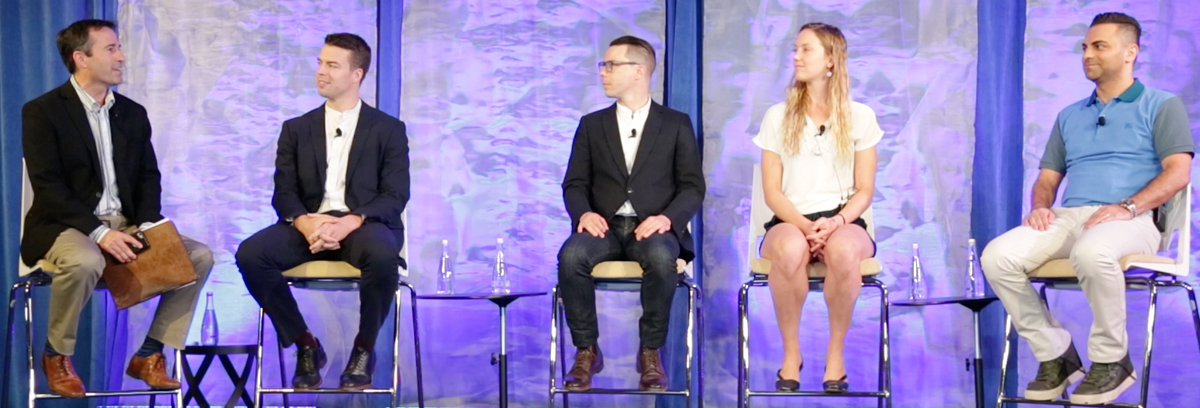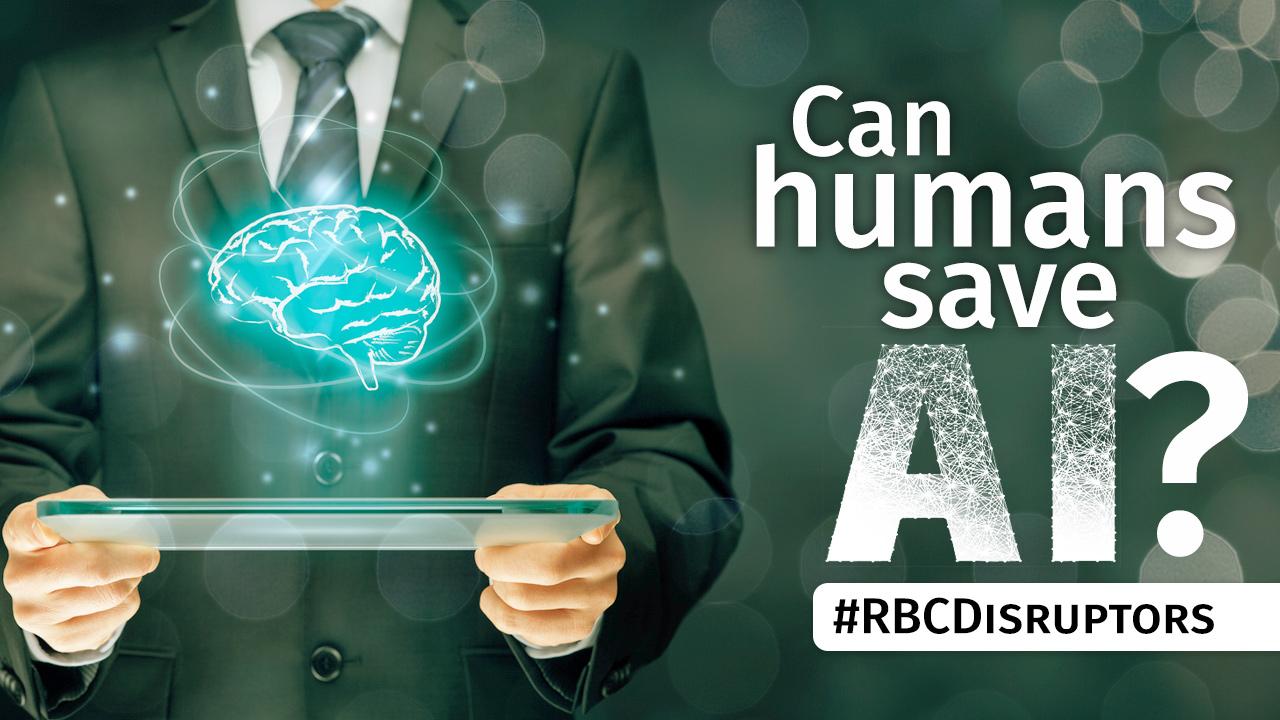The entrepreneurs using artificial intelligence to shape the future of the Canadian economy say we have to start preparing for the consequences of machine learning now.
Advances in artificial intelligence mean computers can now use machine prediction to learn and make decisions on their own, opening the door to a new wave of automation and the threat of computers taking over jobs or at least augmenting human capabilities in ways we can’t fully anticipate.
“This isn’t something that we want to look at five years from now, because it would be way too late,” says Noel Webb, founder of Karen.AI, a recruitment startup.
Webb was among a group of AI entrepreneurs who spoke at RBC Disruptors, a monthly forum on technology and how it’s changing the way we live and work.
He said advancements in AI could have such a broad impact that every company and government needs to have an AI policy.
“We’re at a really great fork in the road here,” Webb said. “The public education system came up back in the first industrial revolution. It’s been hundreds of years since we’ve had to take a look at what it means to have a future of work.”
Webb is part of the first cohort of NextAI, a venture initiative supported by RBC to startups in the field. He was joined on stage by other NextAI entrepreneurs: Shea Balish, founder of fitness-focused REP.ai, and Nima Shahbazi and Krista Caldwell, co-founders of food logistics startup Deepnify.

All four noted the benefits and drawbacks of AI. For consumers, it offers the possibility of an entirely new range of personalized services — including self-driving cars and automated personal assistants. For business, AI it offers the potential to improve operational efficiencies, predict consumer preferences and reduce human error.
Webb said AI can actually help humans by augmenting their skills.
His company’s software reads every single resume submitted for a job — he says companies receive 250 applications for every open position, on average — and uses advanced algorithms to sort and filter them. It’s far beyond keyword searching. He said Karen.AI’s software can even predict personality fits.
“The problem that we’re solving is basically an administrative task,” he said. “The recruiter can really focus on what they want to do best: actually interacting with humans and imparting that judgment.”
Balish, whose company uses AI to generate three-dimensional graphs from two-dimensional videos of athletes, said Rep.AI’s services can save physiotherapists and doctors time during the diagnostic process. Caldwell said Deepnify, which uses advanced AI to optimize logistics and cut waste for fresh food in grocery stores, allows grocery managers to focus on more important work.
Yet AI could also prove destabilizing, accelerating the ongoing process of automation that has affected manufacturing jobs and even broadening it to new forms of work previously thought safe, such as the image recognition algorithms now analyzing X-rays or the natural language algorithms helping lawyers build legal cases.
“There will be some job loss, but I think there will be new jobs created in the process,” Balish said. “It will create an immense amount of value within the economy, so the cost of a lot of things like your vegetables and your daily kind of needs is going to go way down.”
Rep.AI’s focus is athletics and the market for healthcare, and Balish said that improving health outcomes is one of the most promising areas of AI.
“The policies that will be put in place and the foresight that’s already being engaged by some of the top leaders in the world is on a positive trajectory,” he said. “But what I’m most excited about is mitigating human suffering, increasing flourishing.”
A new generation of AI research was kick-started in 2012 by a scientist working out of the University of Toronto, Geoff Hinton, and other Canadian researchers including University of Montreal’s Yoshua Bengio and Richard Sutton made key contributions. Now, their work is the basis for voice assistants like Apple’s Siri, the AI algorithms that beat world champions at games like poker and Go, and the self-driving cars already piloting around San Francisco streets.
- John Stackhouse, Senior Vice President, Office of the CEO

